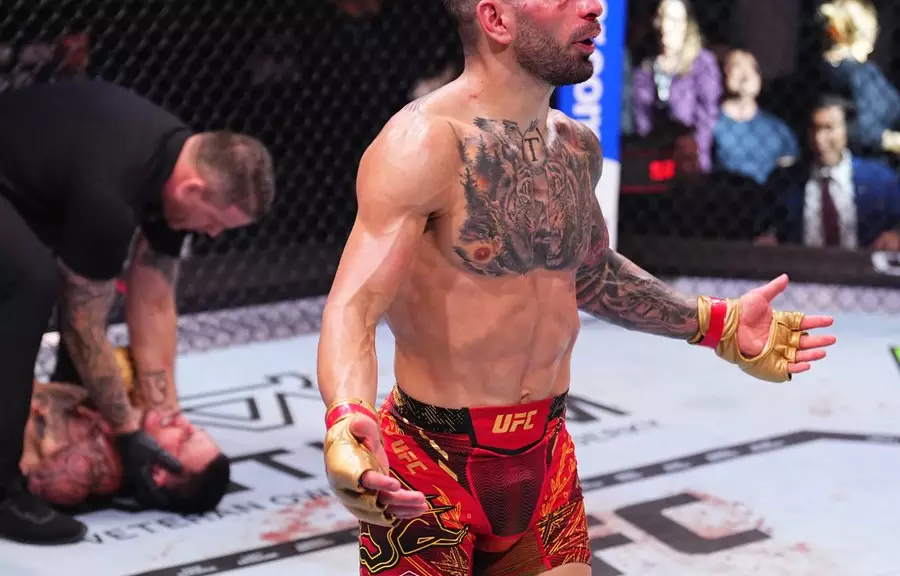Ilia Topuria has made a significant decision in his career by vacating the UFC featherweight title to compete in the lightweight division. This move has sparked interest not only among fans but also within the management of the current lightweight champion, Islam Makhachev. With a record of 27 wins and just one loss, Makhachev has firmly established himself as a formidable force in the lightweight category. However, he has publicly expressed his disinterest in facing fighters coming up from featherweight, including Topuria, who boasts an unblemished record of 16-0 in MMA. Topuria’s aspirations to ascend the ranks at lightweight have created a pivotal juncture that could define not just his own career, but also the future of the lightweight division.
Rizvan Magomedov, Makhachev’s manager, has proposed that Topuria face established competitors in the lightweight division to legitimize his claim to a title shot. His suggestion to pit Topuria against notable fighters like Dustin Poirier or Charles Oliveira underscores the sentiment that rising competitors must prove their mettle against other top-ranked lightweights rather than rely on previous accolades gained in lower weight classes. Magomedov’s call for a “big fight that makes sense for everyone” highlights the growing trend in mixed martial arts where experienced fighters are expected to transition carefully into higher weight classes, engaging formidable opponents to maintain the integrity of title contention.
Makhachev’s trajectory as champion has been characterized by his successful title defenses, including two notable wins against Alexander Volkanovski, the former featherweight king. These bouts have raised questions about the ability of fighters moving between weight classes to compete at the highest level. The fact that Makhachev has had fewer encounters with competitors solely from the lightweight ranks adds a layer of complexity to Topuria’s pursuit of a title shot. His recent performances illustrate the risks champion fighters take when engaging with those coming from lighter divisions, rendering a stint against seasoned lightweights imperative for Topuria.
As Topuria embarks on his journey in the lightweight division, the landscape is indeed competitive. His explosive debut, marked by a knockout over Jai Herbert, was promising, but it was followed by a return to featherweight that somewhat muddled his intentions. With back-to-back knockouts against heavyweight hitters like Volkanovski and Max Holloway, Topuria has undeniably showcased his striking prowess. However, if he aims to solidify his standing in the lightweight hierarchy, a decisive victory against a top contender is essential. The pressure mounts as he prepares for this critical phase in his career.
The potential battles ahead not only hinge on Topuria’s willingness to face heavyweight competition but also on the strategic decisions made by Makhachev and his team. The mixed martial arts arena thrives on high-stakes encounters, and as fighter identities evolve with changing weight classes, the onus remains on fighters like Topuria to validate their legacy in the sport. With every match, the narrative unfolds further, and the lightweight championship picture remains critically dynamic and charged with anticipation. The upcoming bouts will not be just about titles; they will be about legacy and proving oneself in a new weight class.

